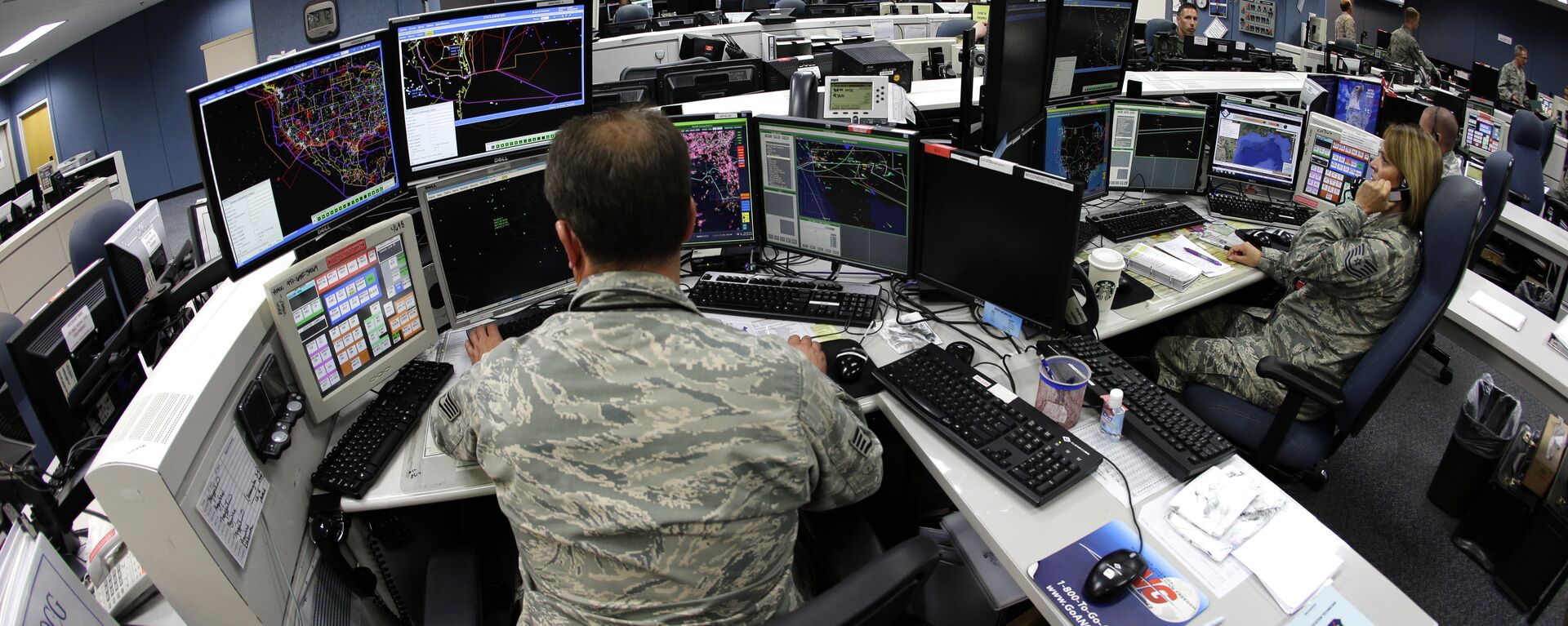https://sputnikglobe.com/20230406/us-cyber-chief-says-emerging-technologies-could-be-most-powerful-weapons-of-21st-century-1109217992.html
US Cyber Chief Says Emerging Technologies Could Be Most Powerful Weapons of 21st Century
US Cyber Chief Says Emerging Technologies Could Be Most Powerful Weapons of 21st Century
Sputnik International
Emerging technologies in areas such as cyber and artificial intelligence could become the most dangerous weapons of the 21st century, Cybersecurity and Infrastructure Security Agency (CISA) Director Jen Easterly said on Thursday.
2023-04-06T17:25+0000
2023-04-06T17:25+0000
2023-04-06T17:25+0000
americas
us
cybersecurity
artificial intelligence
https://cdn1.img.sputnikglobe.com/img/107886/48/1078864895_1:0:1366:768_1920x0_80_0_0_b54c8f7ae51d627a016d96a19d1f8b2c.jpg
“I think this [emerging technologies] is the biggest issue that we’re going to deal with this century. If you think about the most powerful weapon of the last century, it was nuclear weapons… These are the most powerful technology capabilities, and maybe weapons, of this century, and we do not have the legal regimes or the regulatory regimes to be able to implement them safely and effectively, and we need to figure that out in the very near term,” Easterly said during an Atlantic Council event. Easterly cited potential weaponization of cyber technologies, genetic engineering and biotechnologies as risks surrounding emerging capabilities. The US does not worry so much about asymmetry of capability as much as asymmetry of ethics in the cyber and emerging technology spaces, Easterly said. Countries such as China, Iran and Russia are willing to target infrastructure in ways that the US would not, Easterly said. The world is hurdling forward on technologies such as artificial intelligence without proper legal barriers and regulation, Easterly said. Officials are not thinking about the downstream safety consequences of how fast such technologies are moving and how malign actors such as terrorists, cybercriminals and adversary nations may use the capabilities, Easterly said.
https://sputnikglobe.com/20220119/biden-signs-memo-improving-cybersecurity-across-us-defense-intelligence-communities-1092375680.html
americas
Sputnik International
feedback@sputniknews.com
+74956456601
MIA „Rossiya Segodnya“
2023
Sputnik International
feedback@sputniknews.com
+74956456601
MIA „Rossiya Segodnya“
News
en_EN
Sputnik International
feedback@sputniknews.com
+74956456601
MIA „Rossiya Segodnya“
Sputnik International
feedback@sputniknews.com
+74956456601
MIA „Rossiya Segodnya“
us, cybersecurity, artificial intelligence (ai)
us, cybersecurity, artificial intelligence (ai)
US Cyber Chief Says Emerging Technologies Could Be Most Powerful Weapons of 21st Century
WASHINGTON (Sputnik) - Emerging technologies in areas such as cyber and artificial intelligence could become the most dangerous weapons of the 21st century, Cybersecurity and Infrastructure Security Agency (CISA) Director Jen Easterly said on Thursday.
“I think this [emerging technologies] is the biggest issue that we’re going to deal with this century. If you think about the most powerful weapon of the last century, it was nuclear weapons… These are the most powerful technology capabilities, and maybe weapons, of this century, and we do not have the legal regimes or the regulatory regimes to be able to implement them safely and effectively, and we need to figure that out in the very near term,” Easterly said during an Atlantic Council event.
Easterly cited potential weaponization of cyber technologies, genetic engineering and biotechnologies as risks surrounding emerging capabilities.

19 January 2022, 18:32 GMT
The US does not worry so much about asymmetry of capability as much as asymmetry of ethics in the cyber and emerging technology spaces, Easterly said. Countries such as China, Iran and Russia are willing to target infrastructure in ways that the US would not, Easterly said.
The world is hurdling forward on technologies such as
artificial intelligence without proper legal barriers and regulation, Easterly said. Officials are not thinking about the downstream safety consequences of how fast such technologies are moving and how malign actors such as terrorists, cybercriminals and adversary nations may use the capabilities, Easterly said.



